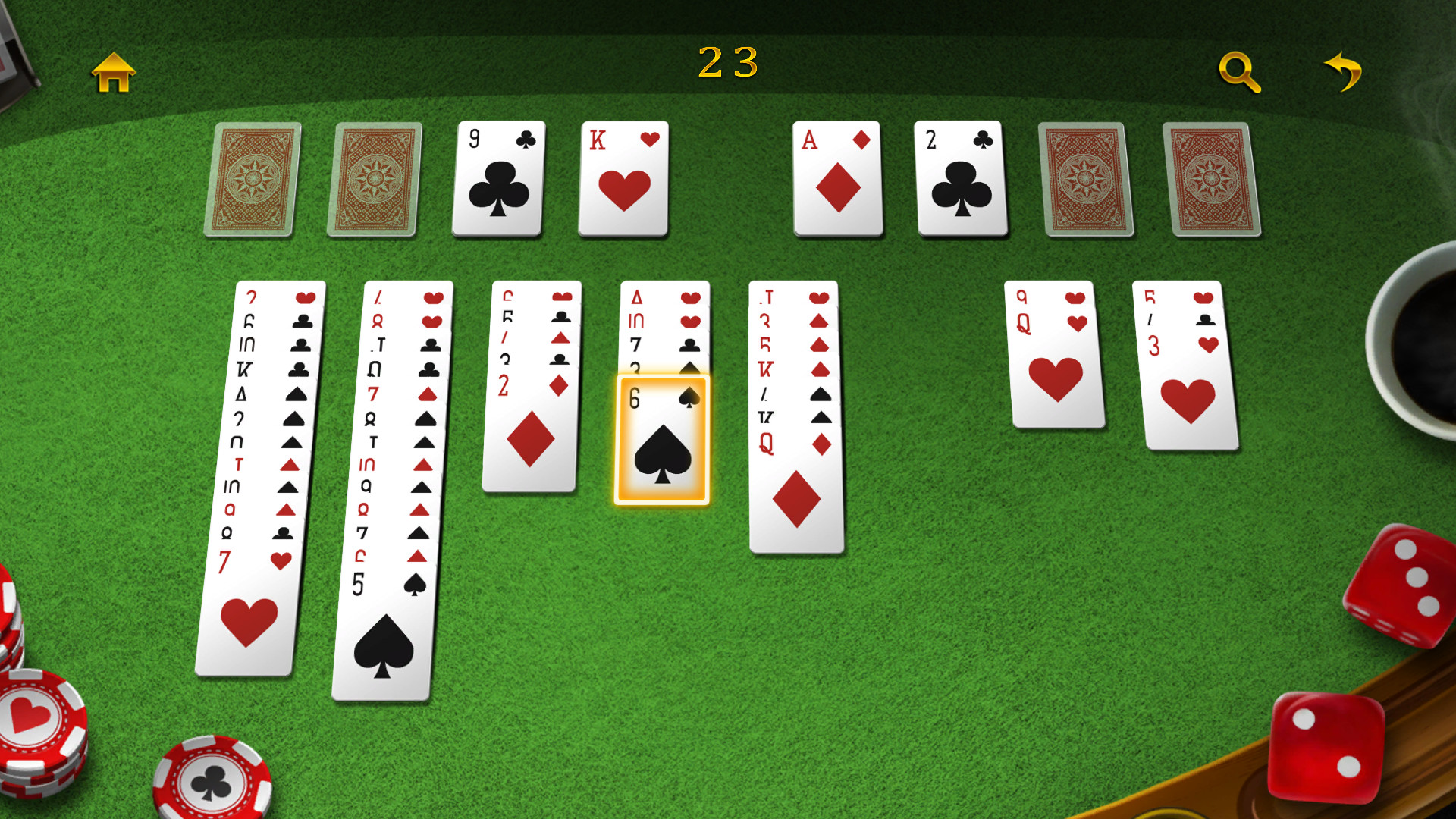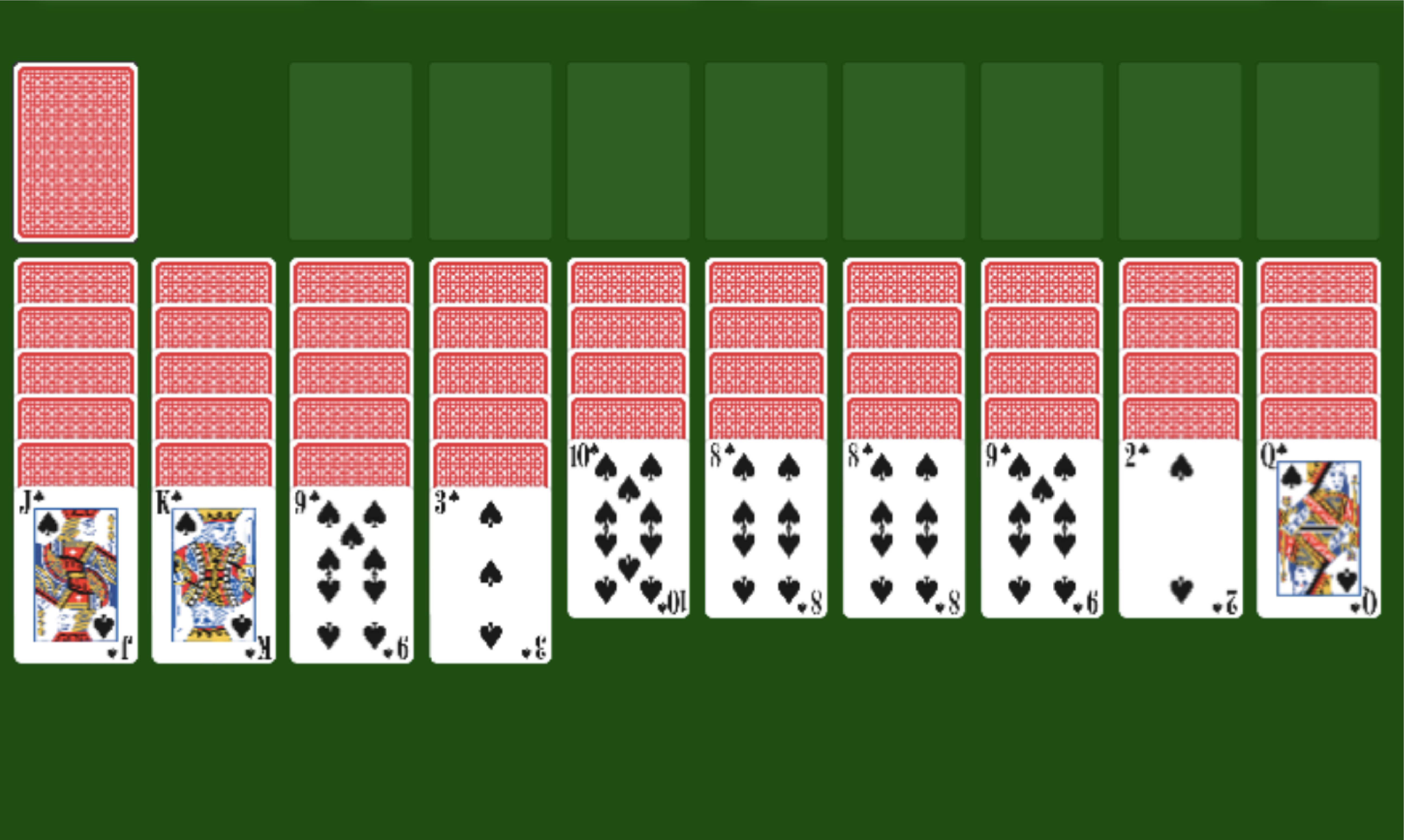Solitaire is a timeless card game that has captured the hearts of millions across the globe. Whether you're playing on your computer, smartphone, or using a physical deck of cards, this single-player game offers endless hours of entertainment. Its simple rules and challenging gameplay make it accessible to players of all ages and skill levels. In this article, we'll delve into the fascinating world of solitaire, exploring its history, variations, strategies, and more.
While solitaire may seem like a straightforward game, there's a lot more to it than meets the eye. This article aims to provide you with a comprehensive understanding of solitaire, from its origins to the different versions available today. Whether you're a beginner or a seasoned player, you'll find valuable insights to enhance your solitaire experience.
Our focus is not only to entertain but also to educate you about the intricacies of solitaire. By the end of this article, you'll have a deeper appreciation for this classic game and the skills required to master it. Let's dive in and explore everything solitaire has to offer!
Read also:Unlock The Potential Login To Remoteiot Free Android For Seamless Iot Access
Table of Contents
- The History of Solitaire
- Popular Variations of Solitaire
- Basic Rules of Solitaire
- Effective Solitaire Strategies
- Solitaire Statistics and Player Demographics
- Best Solitaire Apps for Mobile Devices
- Benefits of Playing Solitaire
- The Psychology Behind Solitaire
- Top Tips for Improving Your Solitaire Game
- The Future of Solitaire
The History of Solitaire
Solitaire has a rich history that dates back several centuries. The earliest recorded mention of solitaire-like games was in the late 18th century in Germany. Initially, these games were played with a standard 52-card deck, much like today. Over time, solitaire evolved, with new versions emerging in different parts of the world.
Origins of Solitaire
The exact origin of solitaire remains somewhat of a mystery. However, it is believed that the game gained popularity in Europe during the 19th century. French and Scandinavian countries, in particular, contributed significantly to the development of various solitaire variations.
One of the most famous solitaire games, Klondike, became widely known in the early 20th century. Its inclusion in Microsoft Windows in the 1990s brought solitaire to an even broader audience, making it a household name.
Popular Variations of Solitaire
There are numerous solitaire variations, each with its own set of rules and challenges. Here are some of the most popular ones:
- Klondike Solitaire: The classic version that most people are familiar with.
- Spider Solitaire: A more complex variation with multiple suits.
- FreeCell Solitaire: Known for its high solvability rate.
- Pyramid Solitaire: A math-based game that involves removing pairs of cards.
Unique Features of Each Variation
Each solitaire variation offers unique gameplay mechanics. For instance, Spider Solitaire challenges players with its intricate layout, while FreeCell provides a more strategic experience. Understanding the differences between these variations can enhance your overall solitaire experience.
Basic Rules of Solitaire
While the rules may vary slightly depending on the solitaire variation, the basic principles remain consistent. Here's a breakdown of the fundamental rules:
Read also:Unblocked Slope Your Ultimate Guide To Unlocking Fun And Adventure
- Use a standard 52-card deck.
- Set up the tableau, stockpile, and foundation according to the chosen variation.
- Move cards between tableau piles following specific rules, such as alternating colors or descending order.
- Transfer cards to the foundation piles in ascending order, starting with Ace and ending with King.
Common Mistakes to Avoid
Beginners often make mistakes that can hinder their progress in solitaire. Some common errors include moving cards unnecessarily, failing to plan ahead, and not utilizing all available moves. By being mindful of these pitfalls, you can improve your gameplay significantly.
Effective Solitaire Strategies
Mastering solitaire requires more than just luck; it demands strategy and foresight. Here are some effective strategies to help you win more games:
- Always keep an eye on your tableau for potential moves.
- Expose hidden cards as much as possible to increase your options.
- Focus on building foundation piles early in the game.
- Be cautious when using stockpile cards, as they may limit your future moves.
Advanced Techniques
For those looking to take their solitaire skills to the next level, advanced techniques such as "peeling" and "stacking" can be incredibly useful. These strategies involve carefully managing your tableau and foundation piles to maximize your chances of success.
Solitaire Statistics and Player Demographics
Solitaire is one of the most played card games worldwide. According to a 2022 survey, over 180 million people play solitaire regularly. The game appeals to a diverse demographic, with players ranging from young adults to seniors.
Player Preferences
Data shows that Klondike remains the most popular variation, followed closely by Spider and FreeCell. Interestingly, the majority of solitaire players prefer digital versions over physical card decks, citing convenience and accessibility as key factors.
Best Solitaire Apps for Mobile Devices
With the rise of smartphones, solitaire apps have become increasingly popular. Here are some of the best solitaire apps available:
- Solitaire Classic: A faithful reproduction of the original Windows version.
- Solitaire Cube: Offers a wide range of solitaire variations and daily challenges.
- Spider Solitaire: A dedicated app for fans of the challenging Spider variation.
Key Features to Look For
When choosing a solitaire app, consider features such as customization options, undo functionality, and multiplayer modes. These features can enhance your overall gaming experience and make solitaire even more enjoyable.
Benefits of Playing Solitaire
Playing solitaire offers more than just entertainment. It can improve cognitive skills, enhance focus, and reduce stress. Studies have shown that engaging in mentally stimulating activities like solitaire can have long-term benefits for brain health.
Cognitive Advantages
Solitaire helps develop problem-solving skills, strategic thinking, and patience. These cognitive benefits can translate into real-world advantages, making solitaire not just a game but a valuable mental exercise.
The Psychology Behind Solitaire
Why do people find solitaire so addictive? The answer lies in its psychological appeal. Solitaire provides a sense of accomplishment with every card moved to the foundation pile. This constant feedback loop keeps players engaged and motivated to continue playing.
Reward System
The reward system in solitaire is subtle yet powerful. Each successful move releases a small dose of dopamine, the "feel-good" neurotransmitter, reinforcing the desire to keep playing. Understanding this psychological mechanism can help players manage their gaming habits more effectively.
Top Tips for Improving Your Solitaire Game
Whether you're a beginner or an experienced player, these tips can help you enhance your solitaire skills:
- Practice regularly to improve your speed and accuracy.
- Experiment with different variations to discover what works best for you.
- Stay patient and persistent, as solitaire often requires multiple attempts to win.
Setting Realistic Goals
Setting achievable goals is crucial for progress in solitaire. Start by aiming to complete a certain number of games per day or mastering a specific variation. As you improve, gradually increase the difficulty level to keep challenging yourself.
The Future of Solitaire
Solitaire continues to evolve with advancements in technology. Virtual reality and augmented reality versions of solitaire are already in development, promising an immersive gaming experience. Additionally, AI-driven solitaire games may offer personalized challenges and adaptive difficulty levels, making the game even more engaging.
Innovative Features
Future solitaire games may include features such as real-time analytics, social integration, and cross-platform compatibility. These innovations will not only enhance gameplay but also foster a sense of community among solitaire enthusiasts.
Conclusion
Solitaire remains a beloved pastime for millions around the world. From its humble beginnings to its current status as a digital sensation, solitaire has proven its timeless appeal. By understanding its history, rules, and strategies, you can elevate your solitaire skills and enjoy this classic game even more.
We encourage you to share your solitaire experiences in the comments below. Let us know which variation is your favorite and any tips you have for fellow players. Don't forget to explore our other articles for more insights into the world of solitaire and beyond!


